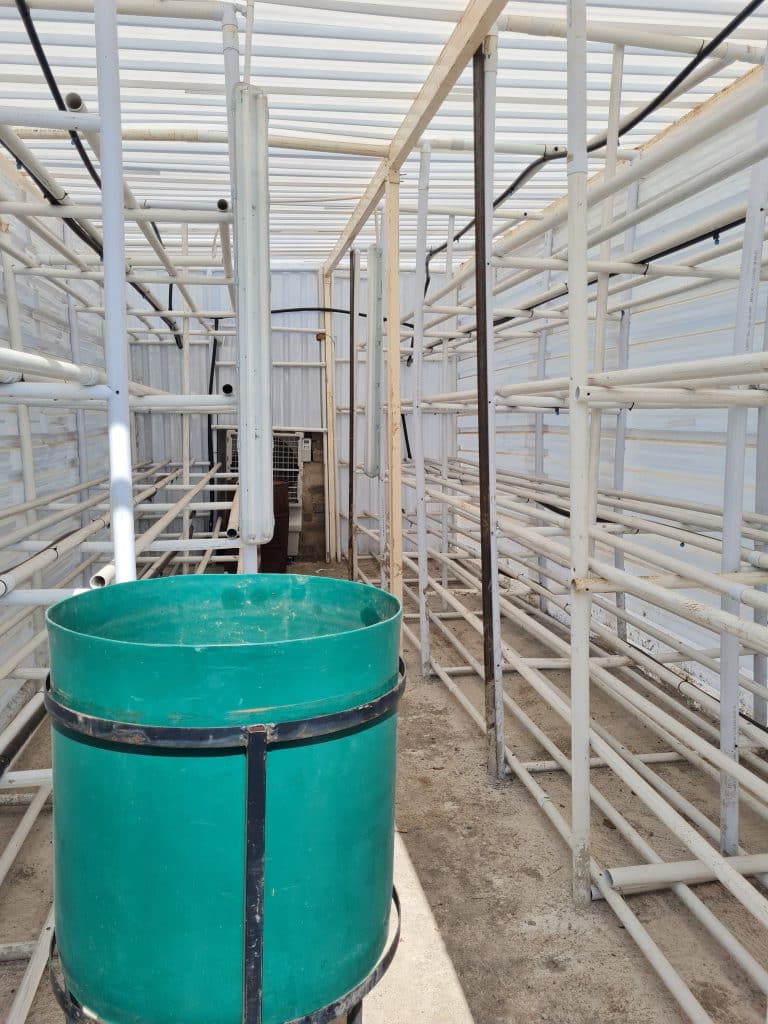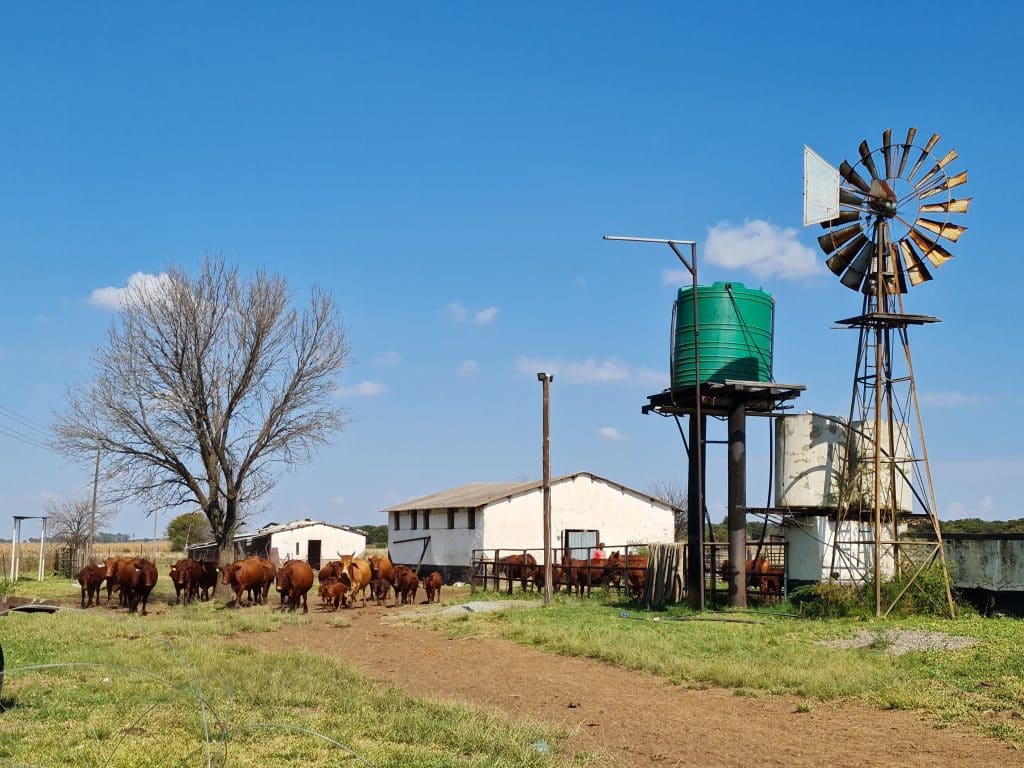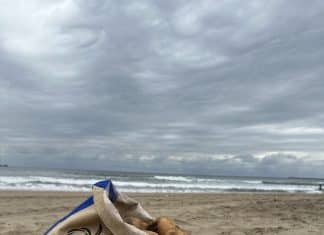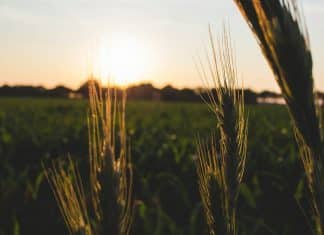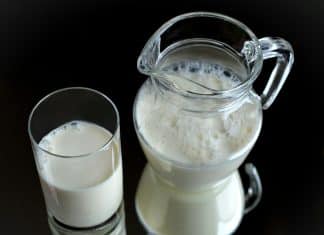Estimated reading time: 7 minutes
- Breaking the grass ceiling is not an easy feat for a female farmer in the male dominated world of agriculture. This is one of the reasons why Selina Hlabedi’s successful farming story is so inspirational.
- Selina Hlabedi’s farming journey started in 2005 when she wanted to help unemployed women earn a living while feeding their families.
- While the Hlabedis were grateful to have their own farm, it was by no means an easy road.
- Animals are routinely dipped during the summer months, dewormed, and vaccinated against brucellosis and other diseases, especially redwater, lumpy skin disease and Rift Valley fever.
- Networking with communities and commercial mentor farmers is possibly Hlabedi’s superpower.
Breaking the grass ceiling is not an easy feat for a female farmer in the male dominated world of agriculture. This is one of the reasons why Selina Hlabedi’s successful farming story – which has been 17 years in the making – is so inspirational.
“Farming isn’t easy, and you won’t become rich overnight. But if you have passion, you will be enriched the day you start farming,” says Hlabedi, winner of the Agricultural Research Council’s Kaonafatso ya Dikgomo (KyD) Beef Farmer of the Year Award for 2022.
Read more about possible business entities for producers.
Landownership not a requirement
Her farming journey started in 2005 when she wanted to help unemployed women earn a living while feeding their families. Initially, they farmed on open spaces within the borders of 60 schools. The women’s labours were rewarded, and in time government helped them to obtain small plots for vegetable and broiler production to supply food to the Gauteng Department of Education for school feeding schemes in the area.
The opportunity to start her own farming business came Hlabedi’s way in 2010 when she was granted 2,5ha of farmland near De Deur, a small town south of Johannesburg. This land was the property of Anna Phosa, a black commercial pig farmer. While the land remained Phosa’s property, Hlabedi was allowed to till the allocated hectares.
On this plot of land, she was able to grow 50 000 cabbages, 10 000 bushels of spinach and 5 000 beetroots per growing season. “We also used the open space between the piggery structures to grow green chillies.
“At that stage I received a lot of help from the Black Umbrella foundation. They played a pivotal role in helping me distribute my produce,” Hlabedi recalls. Most of the produce was sold through the Vereeniging Fresh Produce Market.
Land after nine years
Then, in 2013, Hlabedi received a life changing phone call: “The Department of Land Reform called to let me know that there was land available for me.”
The land in question was a 500ha piece of farmland at Kaalplaats near Vereeniging in the Emfuleni Local Municipality next to the M68. The Hlabedi family moved to the farm in October 2014. “It took nine years to finally obtain land, but never mind that. It was wonderful,” Hlabedi recalls.
Today the farming operation is called Bakwa-Hlabedi Farming and Hlabedi shares the management of the land with her son, Thabang.
She soon became good friends with the neighbouring white commercial farmers and the district’s state veterinarian. “They have been very good to me and have helped us a lot.”
Farming isn’t a fairy tale
While the Hlabedis were grateful to have their own farm, it was by no means an easy road. Initially, they were given a white Brahman herd. “I loved those cattle. To this day I still have a very special affinity for Brahman cattle,” Hlabedi recalls. However, the animals weren’t tested by the department before they were handed over. When she did have the cattle tested, it came to light that the entire herd was infected with brucellosis.
“We held numerous meetings with veterinarians, but finally it was written on the walls. We couldn’t take the animals to auction. They all had to be slaughtered.”
There was another major trauma to face: stock theft. The family suffered two major stock theft incidents: first 200 pregnant ewes were stolen and then 78 pregnant ewes. “After this we decided to not keep small stock on the farm anymore. We’re simply too close to the road.”
Read more about a successful crop producer.
In love with the Bonsmara
Amid these troubling times Hlabedi met Patrick Sekwatlakwatla, the Sernick Group’s head of corporate social investing and marketing, during a Sernick farmers’ day. This was the beginning of a winning friendship, because here Hlabedi learned more about the Bonsmara breed.
Slowly but surely they started buying in Bonsmara cattle and started improving the herd through the Sernick Jobs Fund programme. This fund, aimed at helping new market entrants, loaned Hladedi 35 cows and a bull.
“My son, our farm manager and myself all attended the Sernick production courses. I completed a course on nutrition and Thabang and the manager completed cattle management courses.” They also learned about artificial insemination and how to properly feed animals. “The skills we acquired there are still used on the farm on a daily basis.”
Through grafting and determination, the Hlabedis’ herd has grown to over 50 head of cattle. “We decided to stick with the Bonsmara due to its ease of handling. Their temperament makes it easy to brand them or spray them for ticks,” Hlabedi says. “They are also very well adapted to the South African climate. As long as you give them the necessary vaccinations and medication on time, they will be able to cope well under extensive farming conditions.”
Animals are routinely dipped during the summer months, dewormed, and vaccinated against brucellosis and other diseases, especially redwater, lumpy skin disease and Rift Valley fever.
One of the biggest reasons why Hlabedi is passionate about Bonsmaras is the fact that Sernick and the Cavalier Group pay a premium for her Bonsmara cattle.
“We don’t’ sell our heifers, because we’re in a herd building phase,” Hlabedi says, adding that calves are weaned at 220kg, which is usually when a calf is eight months old. However, even if an animal is not eight months old, it would still be weaned at that weight. “Weaned bull calves are taken to auction, while heifers are grown out on the farm.”
The farm has 13 grazing camps consisting mainly of natural veld and Smutsfinger grass. Cattle will graze on six of the camps during summer and six during winter. The fodder from the additional camp is baled for use during the winter months.
Animals also receive licks and supplements during the summer (molasses, CPH, feed lime, salt and yellow maize) and winter (urea, molasses, feed lime, salt and yellow maize). If Hlabedi wants to fatten the animals up, she adds hominy chop to the mix. “We will also spray bales with molasses from time to time if needed.”
Building community
Networking with communities and commercial mentor farmers is possibly Hlabedi’s superpower. She has never been shy to ask for help from established commercial farmers, nor is her hands ever too closed to offer help to poor communities or new entrants to the sector.
“It’s all about food security. We need to bring back the culture of having a backyard garden.” This is an issue that’s always been close to Hlabedi’s activist heart. She was a founding member of the Women in Agriculture for Rural Development (WARD) movement and today she’s the president of the organisation and treasurer for the Sedibeng Agripark. “We need to help uplift other people through agriculture.
Big plans
Hlabedi still dreams big and there are several plans to expand the farm. A sprout house, where fodder will be cultivated on the premises, is nearing completion.
Furthermore, the Tshwane University of Technology has given her a smart office, which still needs to be erected. “This will change my life. Currently my office is in the house where we live and sleep. It would be wonderful to separate work from our home life.”
The Department of Agriculture has also promised to help the family to erect a feedlot on the farm, and she dreams about installing an abattoir and cooling facilities on the farm during her lifetime. – Susan Marais, Stockfarm
For any enquiries, phone Selina Hlabedi on 082 839 4436.


